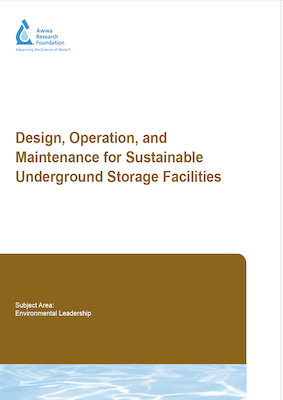With rising water demand, declining groundwater levels, and environmental concerns, achieving a sustainable drinking water supply has become a global priority. Managed aquifer recharge has emerged as a cost-effective solution, supported by advances in geochemistry, microbiology, and hydraulics. This project aimed to identify key factors for the successful design, operation, and maintenance of sustainable underground storage (SUS) facilities by studying both successful and failed sites. The final report highlights lessons learned, explores recharge methods, and provides practical strategies to help water utilities improve system reliability and reduce service disruptions. Additionally, case studies offer insights into how different water systems have approached underground storage to address water supply challenges.
Design, Operation, and Maintenance for Sustainable Underground Storage Facilities Cover

Publication year: 2008
Number of pages: 485
Publishers:
Awwa Research Foundation
American Water Works Association
IWA Publishing
ISBN 978-1-60573-041-7
This book is shared in partnership with the Water Research Foundation:
https://www.waterrf.org/research/projects/design-operation-and-maintenance-sustainable-underground-storage-facilities
Authors:
Awwa Research Foundation
Prepared by:
Herman Bouwer, R. David G. Pyne, Jess Brown, Daniel St Germain, Tom M. Morris, Christopher J. Brown, Peter Dillon, Mitchell J. Rycus
A GW-Project preserved book
Please donate to support us in providing free high-quality education to the global groundwater community.
Thank you,
John Cherry
37286
Description
Thank you for signing up to our email list!
Contents
Thank you for signing up to our email list!
